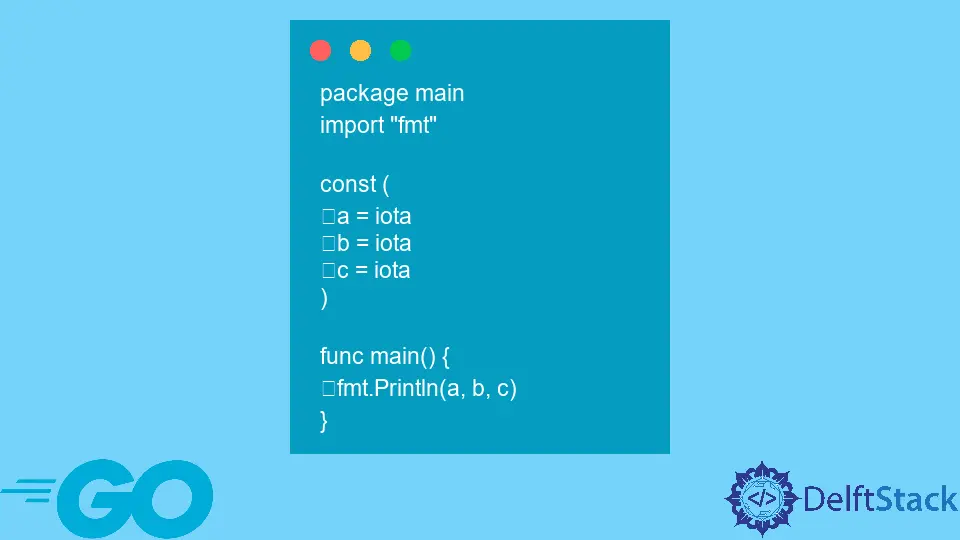Go 中的枚举器
Jay Singh
2023年1月30日

enum(enumerator 的缩写)用于设计复杂的常量分组,这些常量具有有意义的名称,但值简单且不同。
在 Go 中,没有枚举数据类型。我们使用预定义的标识符 iota,并且 enums 不是严格类型的。
在 Go 中使用 iota 表示 enums
iota 是一个常量标识符,可以简化自动递增数字的声明。它表示一个从零开始的整数常量。
iota 关键字表示数字常量 0, 1, 2,...。源代码中出现的术语 const 重置为 0 并随着每个 const 规范而增加。
package main
import "fmt"
const (
a = iota
b = iota
c = iota
)
func main() {
fmt.Println(a, b, c)
}
输出:
0 1 2
在 Go 中使用 iota 自动递增数字声明
使用这种方法,你可以避免在每个常量前面放置连续的 iota。
package main
import "fmt"
const (
a = iota
b
c
)
func main() {
fmt.Println(a, b, c)
}
输出:
0 1 2
在 Go 中使用 iota 创建常见行为
我们定义了一个名为 Direction 的简单枚举,它有四个潜在值:"east"、"west"、"north"和"south"。
package main
import "fmt"
type Direction int
const (
East = iota + 1
West
North
South
)
// Giving the type a String method to create common behavior
func (d Direction) String() string {
return [...]string{"East", "West", "North", "South"}[d-1]
}
// Giving the type an EnumIndex function allows you to provide common behavior.
func (d Direction) EnumIndex() int {
return int(d)}
func main() {
var d Direction = West
fmt.Println(d)
fmt.Println(d.String())
fmt.Println(d.EnumIndex())
}
输出:
West
West
2